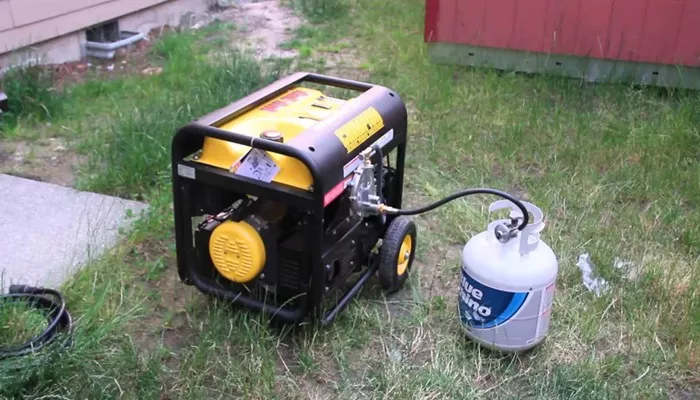Power outages can happen unexpectedly due to storms, grid failures, or natural disasters. When the electricity goes out, a home generator can keep essential appliances running, providing comfort and safety. But are home generators worth the investment? This guide explores the types of generators, their benefits, costs, and key factors to consider before buying one.
How Do Home Generators Work?
Home generators provide backup power when the main electrical supply fails. They operate by converting fuel (such as gasoline, diesel, propane, or natural gas) into electricity through an internal combustion engine and an alternator.
Key Components of a Generator
Engine : Powers the generator by burning fuel.
Alternator : Converts mechanical energy into electrical energy.
Fuel System : Stores and supplies fuel to the engine.
Voltage Regulator : Ensures stable power output.
Cooling & Exhaust Systems : Prevent overheating and manage emissions.
Control Panel : Allows users to start, stop, and monitor the generator.
Generators can be portable or standby (automatic). Portable generators require manual setup, while standby generators turn on automatically during an outage.
Types of Home Generators
Portable Generators
Pros
- Lower upfront cost (500–3,000).
- Can be moved and used for camping or job sites.
- Runs on gasoline or propane.
Cons
- Requires manual operation.
- Limited power output (3,000–8,500 watts).
- Not suitable for whole-house backup.
Standby Generators (Automatic)
Pros
- Powers the entire home automatically.
- Higher wattage (7,500–20,000+ watts).
- Runs on natural gas or propane (no refueling needed).
Cons
- Expensive (3,000–15,000 installed).
- Requires professional installation.
Inverter Generators
Pros
- Quiet and fuel-efficient.
- Produces clean power for sensitive electronics.
Cons
- Limited power output (1,000–4,000 watts).
- Higher cost than traditional portable models.
Benefits of Owning a Home Generator
Emergency Power During Outages
A generator keeps essential appliances running, such as:
- Refrigerators (preventing food spoilage)
- Heating/cooling systems
- Medical equipment (CPAP machines, oxygen concentrators)
- Lights and security systems
Prevents Financial Losses
Power outages can lead to:
- Food spoilage (costing hundreds in groceries).
- Frozen pipes bursting in winter.
- Business interruptions for home offices.
Increases Home Value
A standby generator can make your home more attractive to buyers, especially in areas prone to blackouts.
Convenience & Safety
No need to rush for candles or batteries—generators provide instant backup power.
Drawbacks of Home Generators
High Upfront & Maintenance Costs
Portable: 500–3,000
Standby: 3,000–15,000 (including installation)
Annual maintenance: 100–500
Fuel Costs & Availability
- Gasoline and propane must be stored safely.
- Natural gas generators rely on a gas line (may fail in disasters).
Noise Pollution
Portable generators can be loud (60–80 dB), while inverter models are quieter.
Installation & Permits
Standby generators require:
- A concrete pad.
- Electrical wiring by a licensed electrician.
- Local permits in some areas.
How to Choose the Right Generator
Calculate Your Power Needs
Add up the wattage of essential appliances:
- Refrigerator: 600–800 watts
- Sump pump: 750–1,500 watts
- Furnace: 600–1,200 watts
- Lights: 60–600 watts
A 5,000–7,500-watt generator can power basics, while 10,000+ watts is needed for whole-house backup.
Fuel Type Considerations
Gasoline: Easily available but expires quickly.
Propane: Longer shelf life, cleaner burning.
Natural Gas: Unlimited supply (if lines are intact).
Diesel: Efficient but noisy and expensive.
Transfer Switch Requirement
A manual or automatic transfer switch is necessary to safely connect a generator to your home’s electrical panel.
Noise Levels
If noise is a concern, choose an inverter generator (50–60 dB) over a traditional model (70+ dB).
Are Home Generators Worth It? Final Verdict
Yes, If:
- You live in an area with frequent power outages.
- You rely on medical equipment.
- You want to protect food, electronics, and home systems.
No, If:
- You rarely experience outages.
- You can’t afford installation and fuel costs.
- You don’t need whole-house backup power.
Conclusion
Home generators provide peace of mind during blackouts, but they come with costs and maintenance requirements. Portable generators are affordable for short-term use, while standby generators offer seamless, whole-house power. Assess your needs, budget, and local power reliability before deciding.
If you experience frequent outages, investing in a generator can be a smart decision—ensuring comfort, safety, and protection for your home. Would you consider buying a home generator? Let us know in the comments!
By following this guide, you can make an informed decision on whether a home generator is worth it for your household. Stay prepared and keep the lights on when the grid goes down!

